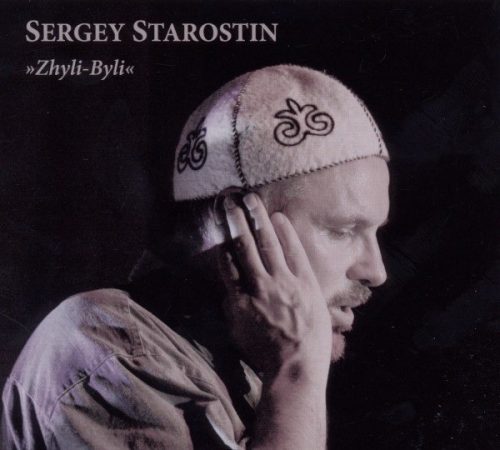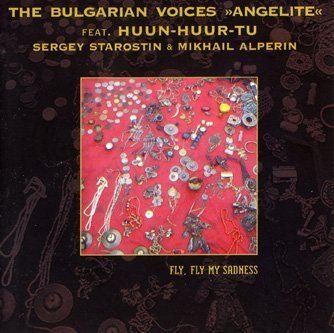Sergey Starostin is a musician, a tireless explorer, and a talented master. He is a brilliant Russian folk and jazz musician, singer and multi-instrumentalist. He’s been collecting and studying Russian folk songs for many years now. In this sense, he is not simply a performer, but also a serious explorer of the folklore who sees a number of phenomena from his own unique perspective. This perspective is then shared through his musical endeavors. For instance, in Sergey’s opinion the reason for the sadness of the ballad songs is not simply the heavy beat and the phonetics, the chanting sound of the Russian language, but actually the fact that traditional songs were created so as to prevent these dreadful and sad events the song related from happening in real life. In a way, this was a magic ritual.
Starostin’s admiration for folklore dates back to his childhood. His first encounters with the roots of Russian culture came about thanks to his family. His parents were people of ‘the generation that used to leave the villages looking for new opportunities in the city’, yet he was brought up in a family environment where Russian folklore traditions were well remembered and preserved.
Sergey Starostin started studying the Russian folklore traditions while he was still a university student. After finishing the first year in University he went on an Ethnological expedition in the Ryazan area where he heard the singing of an elderly local village woman. Starostin would recall afterwards: “she had the amazing ability to not simply sing but rather, as the theoreticians would say, create an astonishing ‘musical image of the song’”. This was the ultimate experience that has branded his musical style.
As a vocalist and instrumentalist Sergey Starostin has had the chance to work also with the renowned Armenian musician Djivan Gasparyan (who plays the duduk), Inna Jelannaya, the rock musician Leonid Fedorov (member of the infamous band Auctyon), the Church-slavonic choir Sirin, Olga Arefevaya, Bylina, Slavici, Mary Boine. He participated in the projects of the Moscow Art Trio (Sergey Starostin, Mikhail Alperin and Arkady Shilkloper) and played with Huun-Huur-Tu, Volkov Trio, Bulgarian Voices– Angelite and others.
He is the author of a number of music projects, and was also nominated for the World Music Awards 2003, bestowed annually by the BBC to the most fascinating world musicians working in the area of ethnic music.
Style
As a musician Starostin manages to combine amazingly the traditional approach to studying and performing folklore songs with the modern and sometimes vanguard music trends.
Sergey Starostin– vocals, gusli, rojok
Sergey Klevensky– clarinet, woodwinds
Taisia Krasnopevtseva– vocals, hurdy-gurdy
Marian Caldararu– Ethnic Percussion
Fly Fly My Sadness (1996) at Jaro 4197-2: The Bulgarian Voices Angelite feat. Huun-Huur-Tu, Mikhail Alperin & Sergey Starostin
Mountain Tale (1998) at JARO 4212-2: The Bulgarian Voices Angelite & Moscow Art Trio feat. Huun-Huur-Tu
The Farlander (1999) at JARO 4222-2: Farlanders with with Sergey Starostin
Moments. Live in Bremen (2000) at JARO 4230-2: Farlanders with Sergey Starostin
Journey (2000) at JARO 4226-2: Sergey Starostin’s Vocal Family (arr. Mikhail Alperin)
Winter in Moscow (2001) at Jaro 4235-2: Mari Boine, Sergey Starostin, Inna Zhelannaya, and The Farlanders
Zhyli-Byli (2011) at Jaro -2: Sergey Starostin, Klevensky, Taisia Krasnopevtseva & Krasnopevtseva


